Comer pledges to hold Biden accountable for 'disastrous' Afghanistan withdrawal
Rep. James Comer, R-Ky., says the American people 'deserve answers' as the House Oversight Committee is expected to hold a hearing on 'The Ingraham Angle.'
FIRST ON FOX: U.S. veteran and pastor Jonathon Alcocer told Fox News Digital it was by the "grace of God" he was able to return to the U.S. after an 11-week endeavor to secure safety for nearly two dozen Afghans endangered by their support of U.S. personnel before the withdrawal from Afghanistan.
On Feb. 12, Alcocer arrived in Zimbabwe with two other Americans to meet a group of 22 Afghans who were fleeing the Taliban. American handlers had moved quickly to evacuate their flock from Afghanistan after the Taliban released an order in January for local officials to assemble kill lists of all former Afghan military and government personnel. Four of the 22 Afghans were among the more than 152,000 special immigrant visa applicants stuck in Afghanistan while awaiting years of processing for their cases. Eleven were children, ranging in age from 6 months to 15 years old.
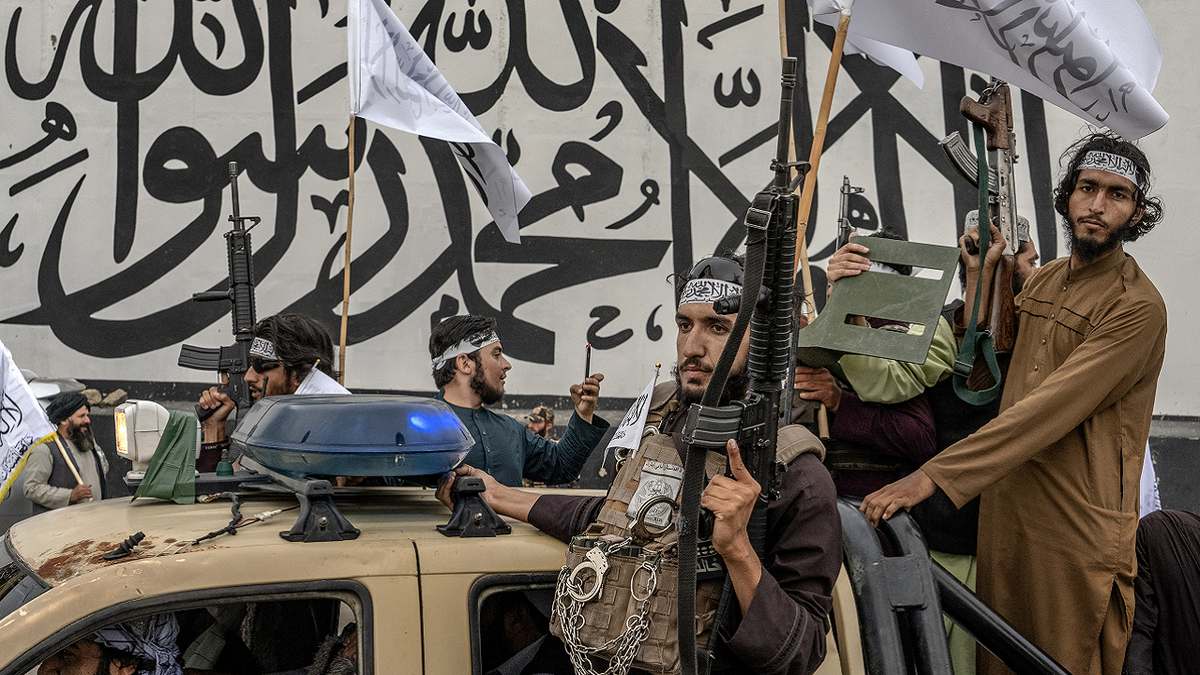
Taliban members celebrate one year since they seized the Afghan capital in front of the U.S. Embassy in Kabul, Afghanistan, on Aug. 15, 2022. (AP/Ebrahim Noroozi)
The Afghans had arrived on traveler visas to Zimbabwe on Jan. 21. They spent a week at a safari park to decompress after being confined to the four walls of their Afghan safe houses for 18 months. Because of their high-level positions in the former government, the Afghans had been under threat of reprisal killings, which commenced shortly after the Taliban took control of Afghanistan in August 2021.
After meeting their American handlers, the group members intended to make their way by bus to the South African border, where they would claim asylum. "Everything had been done legally," Alcocer said, explaining that the nonprofit organization The Lifeline Foundation funded the journey and organized the route. They hoped to establish a pathway that other at-risk individuals could use to escape Afghanistan in the future.
BIDEN ADMIN IGNORES CONGRESSIONAL SUBPOENA FOR AFGHANISTAN DOCUMENTS A THIRD TIME
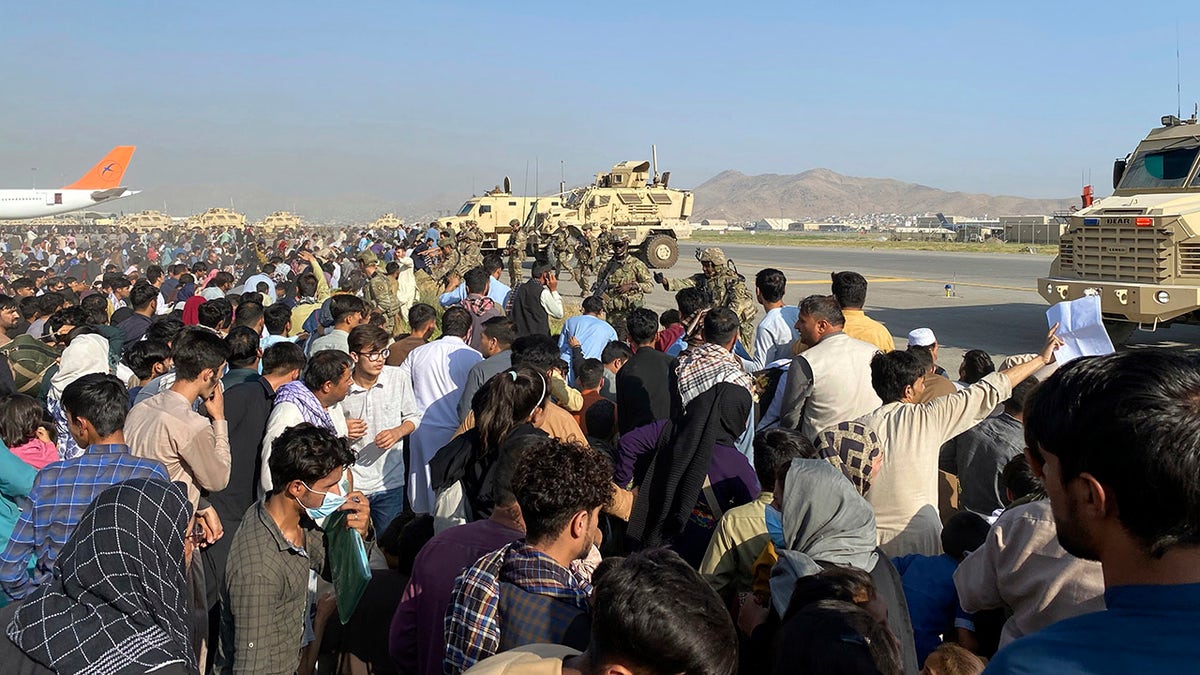
U.S. soldiers stand guard along a perimeter at the international airport in Kabul, Afghanistan, Aug. 16, 2021. (AP Photo/Shekib Rahmani)
Instead, four days later, Alcocer said the bus was "flat out denied entry" by South African officials. In the legal battle that followed, however, he said South Africa was found to have violated international law by refusing to grant the refugees asylum. "As soon as anybody hears ‘Afghan,' there’s little that they can do, or want to do," Alcocer explained.
Zimbabwean officials then directed the group’s hired driver to park the bus in a remote area between Zimbabwe and South Africa. Officials collected passengers’ passports. Over the following three days, adults aboard were interrogated. When the bus ran out of gas, the driver was forbidden from purchasing more. The passengers suffered in the intense heat without air conditioning, and had no access to food or water. "Things were nasty," Alcocer said.
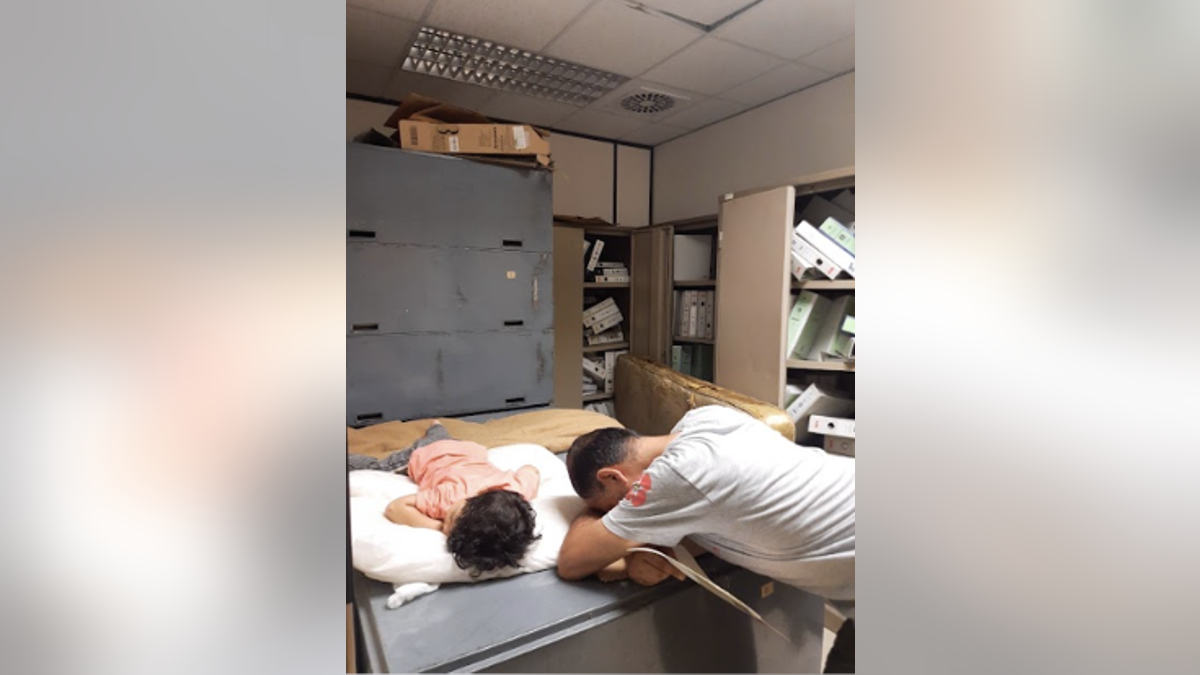
An exhausted Afghan visa applicant keeps watch over his 18-month-old daughter as she sleeps on a metal cabinet in a 90-degree detention facility below Robert Gabriel Mugabe International Airport in Zimbabwe in February 2023. (Jonathon Alcocer)
Then within a few days Alcocer said four Zimbabwean officials "shoved" the group of 25 onto a smaller 15-person bus with a new driver. Along the route to Harare, Alcocer said officials and the driver "were playing psychological operations with us," trying to provoke the adults into behavior that would justify their arrest and deportation. They played pounding music at excessive volume. The driver and officials consumed alcohol inside the bus, and stopped to buy additional drinks at a bar swarming with prostitutes. Each time the driver stopped to relieve himself, Alcocer saw him expose his genitals to the children.
For the duration of the drive, children were forbidden from leaving the bus to use the restroom. "I had kids sitting in their own urine and feces for roughly six-and-a-half hours," Alcocer said.
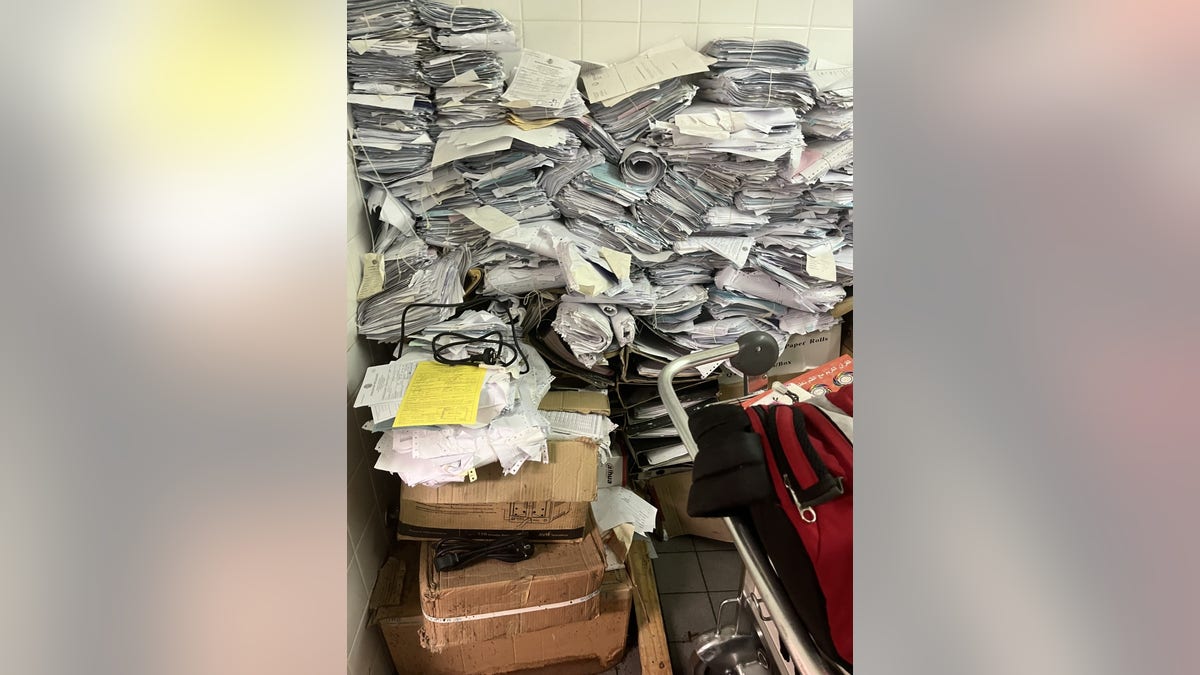
Paperwork containing personal information of travelers was piled in the detention facility where 22 Afghan refugees were forced to stay in Zimbabwe’s Robert Gabriel Mugabe International Airport in February 2023. (Jonathon Alcocer)
Eventually, Alcocer said officials took the group to police headquarters. When the Americans and refugees refused to bribe the officials, they were transported to an immigration building, where officials gave the group seven hours to exit the country. After the entire party arranged means to exit within this timeframe, officials cut the timeline to just four hours. Complying with the shortened timeline proved impossible. Zimbabwean officials charged all three Americans with 22 counts of human trafficking, each carrying a two- to three-year sentence.
Eventually, Alcocer said two officials from the U.S. Embassy arrived to de-escalate the situation. Zimbabwean officials dropped the charges. They told the group they could depart the country the following day, and would be given a room for the night. Alcocer said the room was "a detention cell in the basement of the airport."
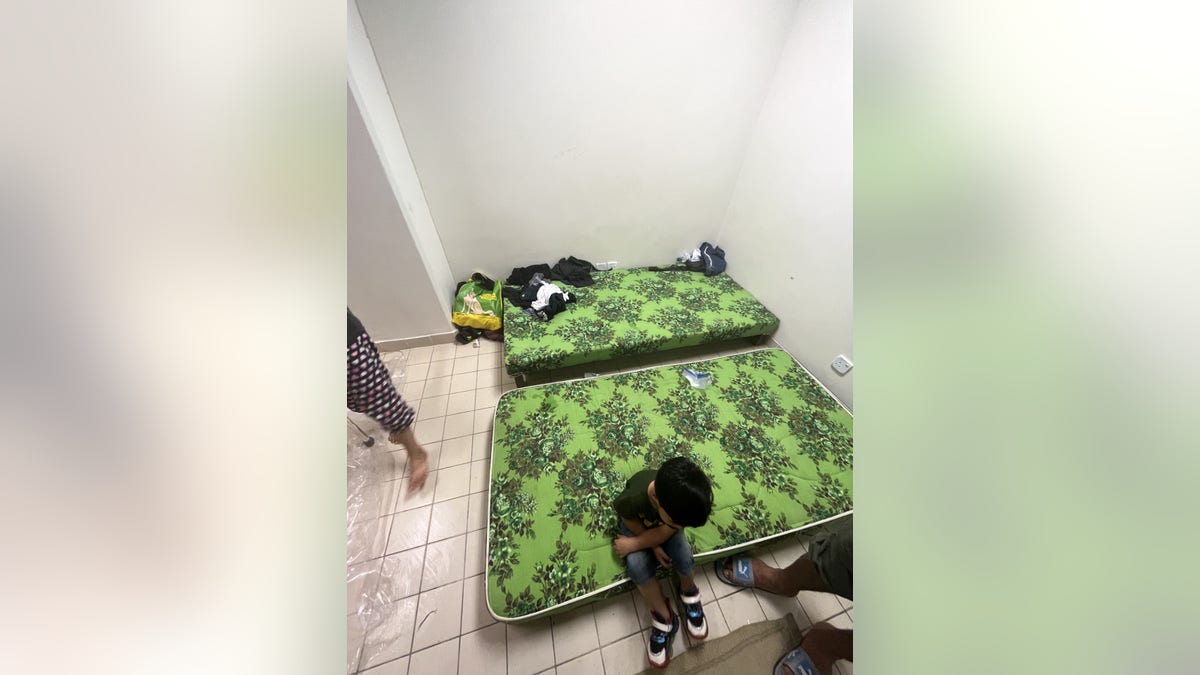
A group of 22 legal Afghan refugees and their American handler were given mattresses and box springs without sheets to sleep on when detained in Robert Gabriel Mugabe International Airport in Zimbabwe in February 2023. (Jonathon Alcocer)
He said, "U.S. Embassy [officials] watched" as Zimbabwean officials padlocked Alcocer and 22 Afghans into a confinement cell, where the temperature was around 90 to 100 degrees. For a little over 24 hours, "all they would give us [were] apples, which we had to pay for, and bottles of water," Alcocer said.
He provided Fox News Digital photographs of spaces filled with bare mattresses, piles of used electronics, and mountains of stamped paperwork filled with travelers’ personal information. Insects climbed the walls and swam in dirty toilets that flooded a room where five children slept. Alcocer said the cell contained no toilet paper or working sink, and only one working toilet. He explained that the officials only released the detainees and returned their passports moments before they boarded flights for Zambia.
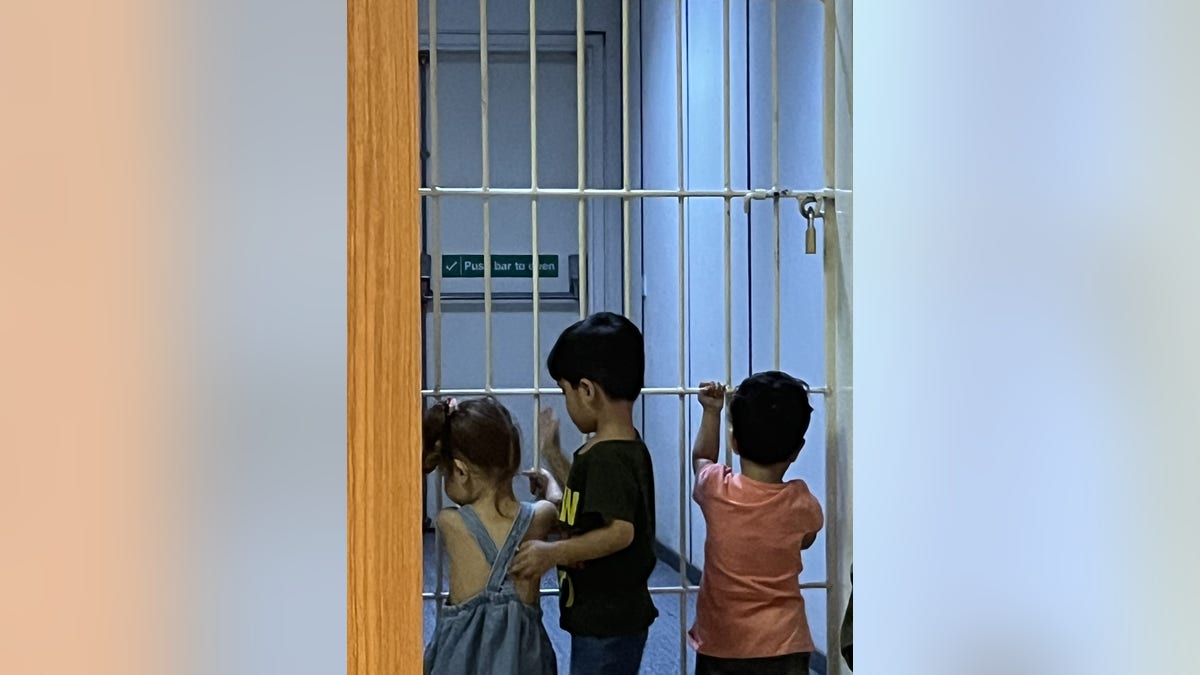
Eleven children were among the 22 Afghan refugees padlocked into a detention facility in Robert Gabriel Mugabe International Airport in Zimbabwe in February 2023. (Jonathon Alcocer)
In response to questions about Alcocer’s allegations, a State Department spokesperson acknowledged U.S. citizens "were briefly detained in Zimbabwe and released," and that personnel in the airport had "raised… concern that U.S. citizens detained in Zimbabwe be treated fairly at all levels." The Zimbabwean Department of Immigration did not respond to requests for comment.
ISIS USING AFGHANISTAN AS STAGING GROUND FOR TERROR PLOTS AFTER US WITHDRAWAL: REPORT
Alcocer remained in Zambia for weeks to ensure the Afghans secured safe haven. The SIV applicants in his care fear being killed if they are forced to return to Afghanistan. Two applicants are former commandos who have survived in hiding only through the financial, medical and other support of evacuation volunteers with Operation North Star, Flanders Fields, and the Moral Compass Federation.
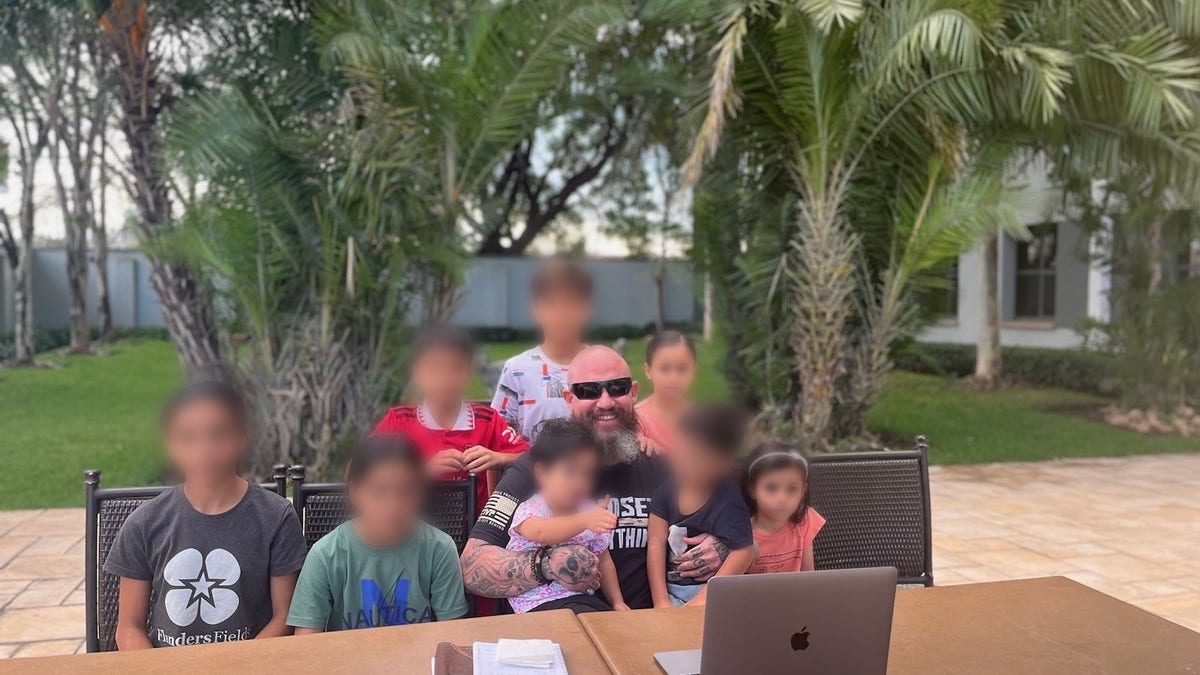
Alcocer relaxes with Afghan refugee children while working to secure their visas in Zambia. (Jonathon Alcocer)
The commandos often receive photos and videos of former colleagues who have been killed for working in the Afghan National Defense and Security Forces. Alcocer said the Taliban does not always stop at harming their direct enemies. He provided photographs of two girls, ages 7 and 12, whose arms were cut off below the elbows because their father served in the Afghan military.
CLICK HERE TO GET THE FOX NEWS APP
Late last month, Alcocer was able to return to the U.S. after Zambian President Hakainde Hichilema helped him secure renewable one-year visas for the Afghans in his care. "Words can’t describe the emotions I felt knowing that the families [are] safe," Alcocer said.
The 22 Afghans remain in Zambia as they await the processing of special immigrant visas to the U.S., which would eventually lead to a path to citizenship, but that process is reportedly facing a major backlog of several years.





















